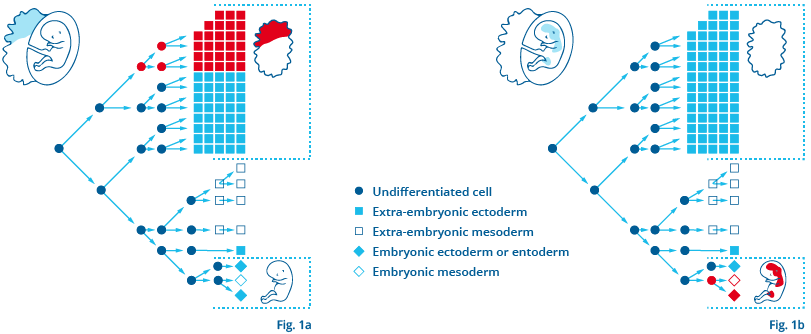Fetoplacental discrepancies
Mosaics limited to the placenta associated with intrauterine growth disorders
Depending on when and in which stage of embryonic development faulty chromosomal division occurs, different tissues (fetal and/or extra-fetal) are affected by it. Fig. 1a shows an example of a mosaic limited to the placenta which can lead to a false-positive or, rather, a discordant test result: here, the fetus is not affected by the chromosomal disorder and invasive diagnostic procedures would reveal an unremarkable karyogram. However, mosaics limited to the placenta can also be medically relevant, since they may be associated with intrauterine growth disorders1. Fig. 1b shows the mosaic distribution of a chromosomal disorder which only affects the fetus, however not the placenta. In such a case, the test result would probably be false-negative. There are still few data about the frequency with which such fetoplacental discrepancies occur. Wegner and Stumm report that in 1–2 % of chorionic villi examined, mosaics limited to the placenta were able to be detected2

Left: Fig. 1a / Right: Fig. 1b
Despite a high degree of accuracy of NIPT, there will always be discordant test results. While invasive diagnostic procedures can, as a general rule, be avoided in the case of an unremarkable test result – in the context of all relevant clinical findings and after appropriate explanation provided to the pregnant woman – positive test results must be diagnostically clarified using invasive methods, according to the recommendations of professional associations.


